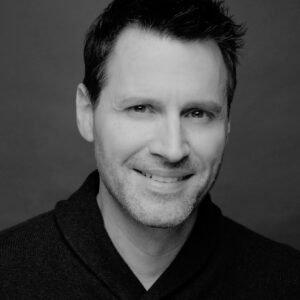
In the theatre world, writers are highly regarded and afforded unusual latitude in how their works are presented and produced. Yet with an ongoing writer’s strike affecting much of television, the 2023 Tony Awards telecast went unscripted and showed why actors (and especially host Ariana DeBose) are so good at what they do.
But it also showed us how actors can lose the point of an evening without a teleprompter to keep them on track. In particular were two moments where the politics upstaged the people, as Florida was twice called out for homophobia and racism. There is certainly plenty for the blue states and the red states to fight about here in the U.S. but a night celebrating the best in theatre is neither the time nor place for such displays of partisanship.
Instead it is a time to showcase how the Tony Awards and Carnegie Mellon University have rightfully recognized the outstanding achievements of Jason Zembuch Young. He is a remarkable theatre director and teacher at South Plantation High School in Plantation, Florida, a small town of about 85,000 people. Zembuch Young’s commitment to theater education and his tireless efforts to make it accessible for all students, regardless of background or ability, is commendable.
With 270 theatres statewide, employing thousands of individuals and contributing more than $157 million to the state’s economy, Florida theater deserves recognition for its incredible impact on communities and students.
However, it was disappointing to see that actor Denée Benton, who referred to the Florida Governor and Republican presidential candidate Ron DeSantis as a “Grand Wizard,” and actor Marcia Gay Harden, who alluded to Florida’s “Don’t Say Gay” bill as she said her name, seemed more interested in promoting a political agenda rather than focusing on theatrical achievements. Theatre should be a platform for unity, inclusivity, and artistic expression, regardless of their political affiliations.
For over 20 years, he has inspired his students, produced remarkable performances, and reshaped policies to accommodate the needs of the Deaf and Hard of Hearing population. “When we are inclusive in the theatre, everyone is better for it. Everyone deserves to have a voice,” says Zembuch Young. His impact also extends beyond the school walls, as he and his husband have fostered and provided loving homes to dozens of abused and underprivileged children.
Theatre transcends political divides, providing a common ground where people from all walks of life can come together to experience the beauty of live performances. It is the creativity, talent, and dedication of individuals like Zembuch Young that make theatre thrive, not partisan debates or political grandstanding.
Instead of allowing politics to overshadow the celebration of theatre in New York and around the country, we should shift our attention back to the incredible work of artists, teachers, and performers who devote their lives to theatre education and ensure that the arts remain accessible to all. Let us remember that theatre has the power to transcend political divides, inspire empathy, and ignite conversations that ultimately bring us closer together.
Why Theatre Still is, and Always Will Be, Important
GalaPro App Making Theatre Accessible


Patrick Oliver Jones has been in the performing arts both onscreen and onstage for more than 30 years. Originally from Birmingham, Alabama, he brought his Southern charm and hospitality to New York City where credits include off-Broadway world premieres and classic musicals. He was in the original casts of First Wives Club in Chicago and two North American tours, The Addams Family and Evita. He has also been recognized regionally for such roles as Bruce in Fun Home (Henry Award nominee for Best Leading Actor in a Musical) and Bela Zangler in Crazy for You (SALT Award Nominee for Outstanding Supporting Actor in a Musical). On camera, there have been numerous national commercial appearances (including voiceover work) and co-starring roles on primetime television dramas like Blue Bloods and Law & Order: Criminal Intent. As a producer, Patrick has two shows on the Broadway Podcast Network: Why I’ll Never Make It, now in its seventh season, and Closing Night, and new theater history podcast. In 2022, he received the Communicator Award of Distinction from the Academy of Interactive and Visual Arts for his work in podcasting. His producing efforts also include projects for the stage at various off-Broadway spaces, theater festivals, and concert venues.
Read Full Profile© 2021 TheatreArtLife. All rights reserved.

Thank you so much for reading, but you have now reached your free article limit for this month.
Our contributors are currently writing more articles for you to enjoy.
To keep reading, all you have to do is become a subscriber and then you can read unlimited articles anytime.
Your investment will help us continue to ignite connections across the globe in live entertainment and build this community for industry professionals.